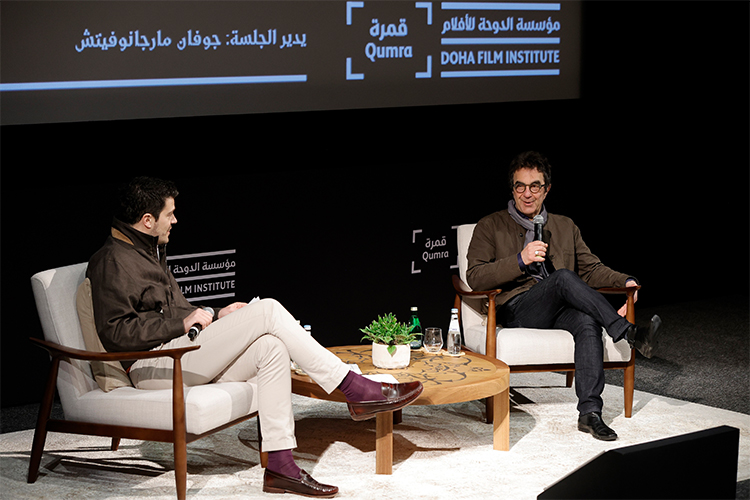The tenth edition of Qumra, the annual talent incubator event by the Doha Film Institute, concluded with a riveting masterclass by Qumra Master Atom Egoyan (Exotica, The Sweet Hereafter, Seven Veils) whose advise to emerging filmmakers was to be brave, be rigorous about production schedules, and to explore the tensions within to find their original cinematic voice.
“Independent cinema gives you the freedom to explore, to choose what moments you shot are magical and gives you the gifts you weren’t expecting,” said Atom, who said it was important to have a purpose of the frames one was composing and to discipline their schedules with carefully timetabled shots.
The writer, director and producer, who has supported the journey of many first- and second-time filmmakers himself, has a distinguished oeuvre of films, many of them centred around the themes of identity, memory and trauma, inspired in part by his own Armenian roots and the Armenian Genocide.
He said making films about such excruciating chapters from humanity does not mean it is a healing process. “These films are a record of what is happening – and continue to happen – most recently with over 20,000 Armenians displaced in September 2023.
“When I tell their story, I am acknowledging what they experienced. My film is not going to change their pain or heal them. But it is interesting that sometimes you meet someone who say they felt cathartic after watching the film – and it is meaningful that they felt that, and you feel blessed that you can transit that emotion.”
Atom said in documenting the Armenian Genocide in Ararat (2002), “the immediate pain was distanced, and I was able to contemplate on the catastrophe from far; I feel less equipped to deal with it when it is actually happening. What you see in Palestine right now is unimaginable; it is real and getting worse. We cannot be reflective about it because we are in the thick of it and the huge impact it has is not just going to go away.”
He said that as storytellers, what is most important is for filmmakers is “to make available genuine narratives to others and not be swayed by the narratives that have an agenda. We must find our natural voice and speak the truth because even neutrality has an agenda very often. Histories and stories are not communicated through slogans – but through one-on-one conversations between people.”
Atom said his films are personal – and many of his writing and productions come from a “very personal space” to assert his views in a world that doesn’t care – and many are in denial of the realities. His own migrations – being born in Egypt to Armenian parents and then moving to Canada – has had a profound influence on his career.
“As a child, I have always felt like an outsider, and it was very difficult as the only Armenian family where I grew up to assimilate. I started creating imaginary worlds around me and doing theatre because it was a way of dealing with my differences,” said Atom.
Atom said he is inspired to be in Doha and explore the architecture of the museums. “I have seen the Doha Film Institute label on many films that I have admired over the years, and being here, I understand why; DFI is such a remarkable organisation.”



